UM-Flint psychology interns help kids cope with grief at Camp Hope
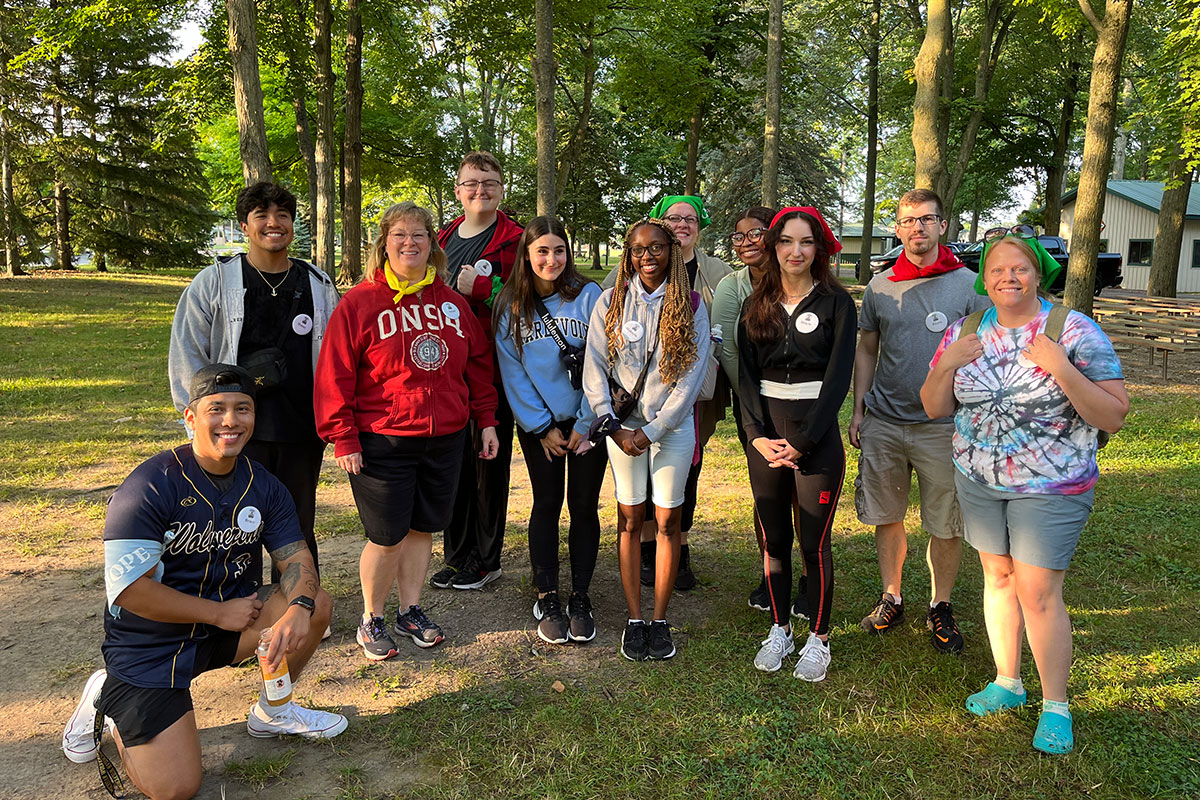
Each year, children worldwide spend time away from home, making new memories and friends at summer camps. But for a select group of 6- 17-year-old kids who gather each August in Lapeer, there's more to it than canoeing, swimming, playing basketball, arts and crafts, and making s'mores over the campfire. For these kids, this summer camp is also about processing their grief.
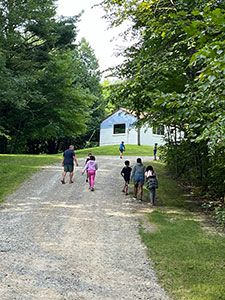
"There's a general belief that kids are resilient and, therefore, don't need special grief support when a loved one dies," said Jane Olivier, bereavement coordinator for Wellspring Lutheran Services Hospice and director of Camp Hope. "Our experience providing hospice care told us differently, that while children are resilient, they still need and deserve the opportunity to process their loss. Children and teens grieve in doses; they don't immerse themselves in grief like adults might. So, we created a space specifically designed for how kids grieve and started Camp Hope in 2004. It began as a one-day camp with 20 little campers and a very long waitlist. The next year, we turned it into a three-day, two-night camp with nearly four dozen campers yearly."
In 2006, Olivier began collaborating with Maureen Tippen, a former associate professor at the University of Michigan-Flint's School of Nursing, to offer an internship opportunity for nursing students. The collaboration between Wellspring and UM-Flint continued until the COVID-19 pandemic impacted the camp. When Camp Hope returned to its three-day, two-night format in 2023, Tippen had retired, and the proverbial baton was passed to professor of psychology Susan Gano-Phillips.
"Maureen connected me with Jane, and I volunteered as a camp counselor for Camp Hope in 2023. What struck me was the universality of grief and how it touches all of our lives, but not many of us are prepared for that experience," said Gano-Phillips. "Our psychology students are trained for a wide range of careers, and I knew that this experience was something they could carry with them no matter which field they pursue. So I developed an internship program for the 2024 session, and the student interns worked on projects to enhance the camp throughout the summer, leading up to Camp Hope in August."
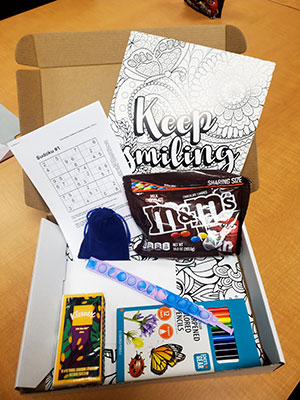
Eleven psychology interns provided almost 1,000 hours of service to Camp Hope, beginning with creating "Moving Forward" grief toolkits for the campers to take home after camp. Interns also developed resource lists of books, videos and podcasts about grief and recovery for children, teens and their parents. A grant from the College of Arts, Sciences & Education Opportunity Fund allowed interns to develop and lead an introductory team-building activity at camp and to introduce an activity designed to remind campers about their support systems, which involved creating a knotted paracord bracelet. During the camp, the student interns also facilitated other activities designed to help the kids share their grief experiences.
"My absolute favorite part of the camp was the memory pillow project," said Kristina Smallish, a senior from Saline and Camp Hope intern. Olivier had pillow covers printed with pictures of each of the campers' loved ones who had passed away, and campers could share their memories with the group, then stuff the pillow and decorate it to take home. "The kids were very awkward and silly but also incredibly present and vulnerable. They were really supportive of one another during that experience, and many of them said they were able to express their feelings in ways they hadn't been able to before."
The "fishbowl of feelings" is another activity intentionally designed to help campers better understand and process their emotions.
"We start with clear water in the bowl, and then the group begins to name feelings about their loved one dying, and we associate that with a specific color. So, if they're mad, it's red; sad, it's blue; jealous of their friends who haven't lost a loved one, it's green, and so on," Olivier said. "They each come up and put food coloring into the bowl; as you can imagine, it's just a murky brown bowl at the end. And that's the point—that often, they don't know how they're feeling, and it is just murky and uncomfortable, but that discomfort is comprised of a lot of perfectly understandable feelings."
After the group discusses how feeling these emotions is natural, they share ways to make themselves feel better.
"As campers offer up things they can do to feel better—riding their bike, listening to music, hugging a loved one—they come up and start putting drops of a 'solution' (bleach) in the fishbowl," said Olivier. "With each drop, the murkiness begins to clear, but it doesn't happen immediately and doesn't take it all the way. It takes time. This activity is specifically designed for the kids to visualize how grief can look and feel and get some ideas for new ways to cope with their grief."
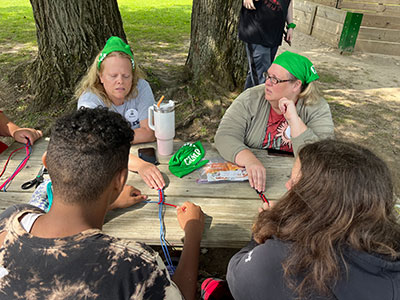
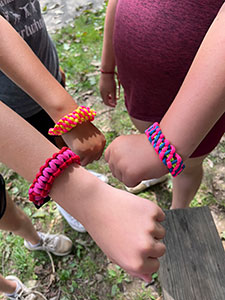
For intern Bruce Bourne, a senior from Detroit, the experience helped expand his perspective regarding his future work.
"I recently lost my father and was able to share that experience with the kids, learning how to observe and process my own emotions while being in an environment where everyone was grieving," Bourne said. "I also learned that kids love me and my mentorship style and personality, and I know now that I am capable of much more regarding different populations. My primary interest is working with veterans, but this experience showed me that I could also include family therapy in my future practice."
Bourne's takeaway from his internship experience reflects how Gano-Phillips designed the program. In addition to enhancing their career readiness and helping them solidify their plans for future work, interns sharpened their communication, teamwork, critical thinking, and leadership skills.
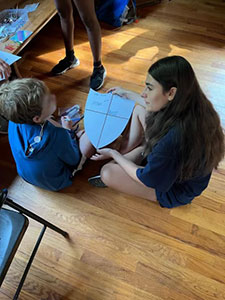
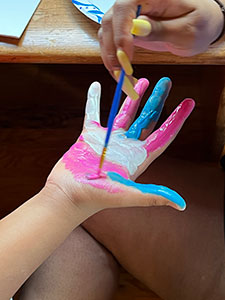
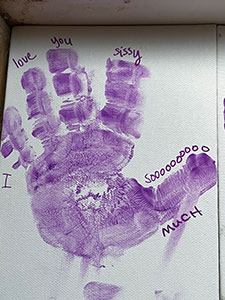
For Olivier, the best part of the collaboration between UM-Flint and Camp Hope is the ripple effect the experience has on the entire community.
"It moves me to think about all of the students—first nursing and now psychology—who are bringing their experiences of working with children at Camp Hope into their practices and changing the narrative of how we talk about and understand grief, death and dying," said Olivier. "Camp Hope is a part of them too, and I hope this partnership inspires others. Hospices, death, dying—it doesn't seem like a natural fit for an internship, but we will all experience it at some point in our lives, and developing skills to talk about these complex emotions can help us all."
Psychology students interested in the 2025 Camp Hope internship program should contact their advisors or Amanda Smith at osborne@umich.edu. For more information about Camp Hope, visit its website.
Related Posts
No related photos.
Kat Oak
Kat Oak is the communications specialist for the College of Arts, Sciences, and Education. She can be reached via email at katheroa@umich.edu.